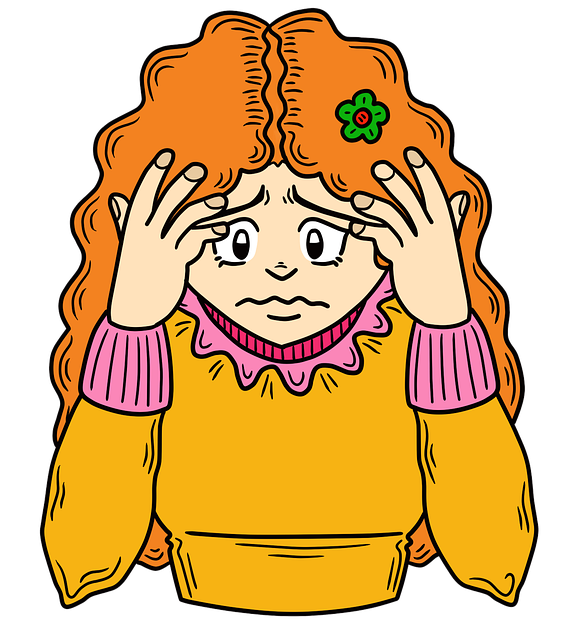I grew up in a family of worriers. As I remember it, my grandmother, who is my mother's mother, was the person who worried the most. She imagined disasters happening everywhere. I remember how one night when I was a boy, my older brother was out on a date with the girl. It was the middle of the night, and I was asleep. I woke up to the sound of my mother and grandmother pacing back and forth in the living room while my grandmother imagined all kinds of disasters happening to my brother.
Finally, my grandmother scolded him for being late to home. He calmly reported that the subway trains were delayed, and that was the only problem. That ended that particular episode. But what especially stands out to me is how my grandfather slept soundly through the entire thing. He was not a worrier.
I will confess that I am also someone who worries. I have also been prone to anxiety. Is it the therapist? I know the diagnosis: I have a general anxiety disorder. At 81 years old, I am finally much improved. But all my worrying served absolutely no purpose. It was a waste of energy, and that is the major point that I want to make about worrying. It accomplishes absolutely nothing and is a waste of time. That is why Mary Oliver's poem is especially important and it is entitled "I Worried."
“I Worried"
I worried a lot. Will the garden grow, will the rivers
flow in the right direction, will the earth turn
as it was taught, and if not how shall
I correct it?
Was I right, was I wrong, will I be forgiven,
can I do better?
Will I ever be able to sing, even the sparrows
can do it and I am, well,
hopeless.
Is my eyesight fading or am I just imagining it,
am I going to get rheumatism,
lockjaw, dementia?
Finally I saw that worrying had come to nothing.
And gave it up. And took my old body
and went out into the morning,
and sang.”
― Mary Oliver, Swan: Poems and Prose Poems
A discussion of Mary Oliver's poem:
Mary Oliver's poem "I Worried" is a powerful and relatable piece that speaks to the universal human experience of anxiety and the ways in which we can overcome it. The poem is particularly relevant in today's fast-paced, stress-filled world, where many people find themselves consumed by worry and fear.
The poem begins with the speaker admitting, "I worried a lot. Will the garden grow, will the rivers flow in the right direction, will the earth turn as it was taught, and if not, how shall I correct it?" These opening lines capture the sense of helplessness and uncertainty that often accompanies worry. The speaker is concerned about things that are ultimately beyond their control, such as the forces of nature and the movement of the planet. It highlights the futility of many of our worries, which often revolve around things we cannot change or predict.
As the poem progresses, the speaker's worries become more personal and specific. They worry about their health, their relationships, and their sense of worth and purpose. These are common concerns that many people grapple with on a daily basis, and Oliver's words give voice to the inner turmoil that can result from such worries.
However, the poem's turning point comes when the speaker realizes that their worries are not serving them. They write, "Finally, I saw that worrying had come to nothing. And gave it up. And I took my old body, went out into the morning, and sang." This moment of epiphany is crucial, as it represents a shift in perspective and a decision to let go of the burden of worry.
The act of going out in the morning and singing is a powerful symbol of liberation and joy. It suggests that by releasing our worries and embracing the present moment, we can find a sense of peace and happiness that is often elusive when we are caught up in our anxieties.
The relevance of "I Worried" lies in its ability to speak to the common human experience of worry and to offer a message of hope and resilience. In a world where stress and anxiety are all too common, the poem reminds us that we have the power to choose how we respond to our worries. By letting go of the things we cannot control and focusing on the beauty and joy that surround us, we can find a sense of peace and contentment that is often hard-won but always worth the effort.
Moreover, the poem's message is particularly pertinent in light of recent global events, which have brought unprecedented levels of uncertainty and anxiety to people's lives. In times of crisis, it is easy to become overwhelmed by worry and fear. Still, Oliver's words remind us that we have the strength and resilience to overcome even the most challenging circumstances.
Mary Oliver's "I Worried" is a timeless and relevant poem that speaks to the universal human experience of anxiety and offers a message of hope and empowerment. By reminding us of the futility of worry and the importance of embracing the present moment, Oliver encourages us to let go of our fears and find joy in the simple act of living. In a world that is often filled with stress and uncertainty, this message is more important than ever, and "I Worried" serves as a powerful reminder of the strength and resilience of the human spirit.
If you tend to worry, I suggest doing calm meditation two or three times a day. In addition, deep breathing exercises and muscle relaxation help a lot. Some cognitive self-therapy also helps. Ask yourself what the probability of any disaster you are imagining may actually happen. You may discover that, yes, there is a chance this terrible thing could happen. But what are the chances that this imagined disaster could actually happen? When you realize that the chances are small, it will help you to relax. Then think about and imagine in your mind pleasant things.
Some strategies to reduce stress and anxiety are:
Take yourself on a journey to the most beautiful beach, forest, or ocean, and picture it. You will discover that it helps a great deal. Yoga is always an excellent idea.
Listen to calm music.
Walk in nature.









Maybe there is a worry gene
I grew up in a family of worriers too. Great read Allan.